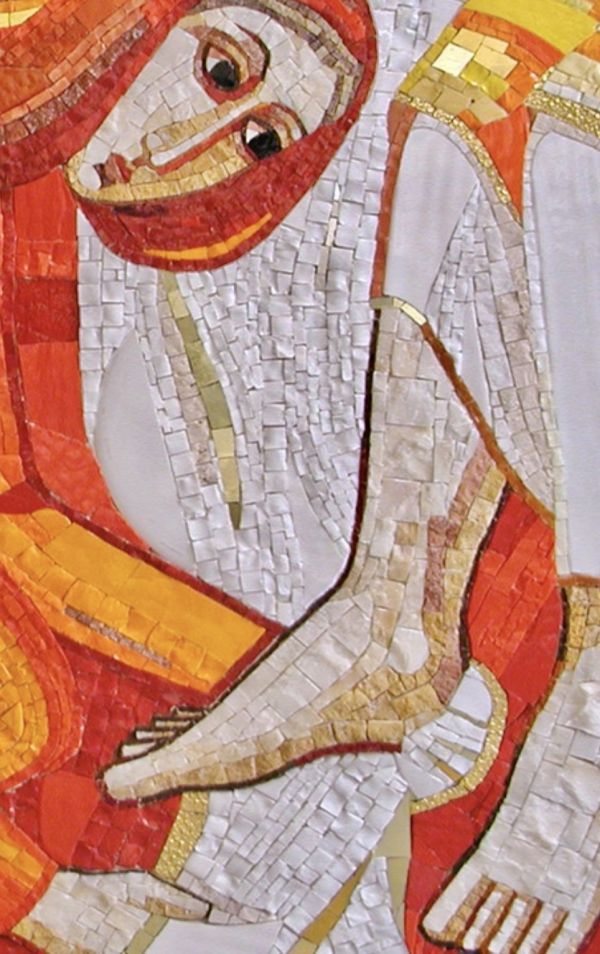Action of the Risen One
(Lk 8:1-3)
The rabbis did not accept women into their schools, because they were considered not up to the task.
But Jesus doesn’t come to teach laws or philosophies, vice versa to gather around Him the despised and non-persons of all times.
In Christ each one opens himself to hope. Who was considered as worthless proclaims and bears witness to God’s love for the little ones and the least.
All with delicacy, and here are the female figures: fidelity takes over.
In women, piety arises spontaneously [it is not conceived as for us males: immediately to the goal and source of gain].
With them also vanishes the anxiety of performance that accompanies men, who also on the ‘good’ must immediately appear setting up platforms and défilé; be all noticed, cultivate public and private relations that matter, and make career over it.
Jesus conquers the hearts of women because He understands their generosity, the depth of feelings, the capacity for dedication and personal relationship, the extreme gift of self; sensitivity, Faith-love, patience, meekness, generosity, capacity for fatigue and suffering.
Instead of "killing" time, women fill it thoroughly.
Jesus does not want a humanity aimed at being appreciated more than “hiding”, inclined to speak more than to ‘perceive’; willingly inclined to organize-plan more than to meditate - and to sense the depth of our Roots.
The prevalence or balance of the female aspect is an appropriate counterweight to a world prone to dirigisme and the exercise of the will, rather than to the cultivation of sons’ feelings.
Happy is that vocation accompanied by the intensity, depth, delicacy, ability to wait and at the same time consistency to the principles - and participation in destiny - typical aspects of female sensitivity and the world of consecrated women.
[Perhaps that of Mary, Joan, Susannah and many others of the early days was a role comparable to that of Martha in the family of Bethany, coordinator of the community of only sisters and brothers].
In Lk, the story of women expresses the action of the Risen One. He accepts them as followers and disciples.
In the female figures we read in filigree the story of humanity that in Christ rises and assumes dignity.
Nation that becomes fraternal in pain, prepares nourishment (instead of taking it away), persists, struggles and in this action becomes even an icon of prayer.
It is a model of dedication and self-giving [instead of calculation and cunning] - ready for life, and type of the Announcement; treasure that unleashes the Spirit.
Jesus on his way with the Twelve (v.1) still has a long journey to go today in the magic of the feminine - who knows how to welcome the person and listen to events, always being on the field.
Women learn from their essence, so they know how to attract, they know the indispensable things, they understand where and how to proceed, they are present in the present - and without dominating, they solve problems.
They are not afraid of losing “position”.
To internalize and live the message:
Do you feel called to a spiritual synthesis of personalities, with all the virtue and completeness that springs from a more complete character?
[Friday 24th wk. in O.T. September 19, 2025]












